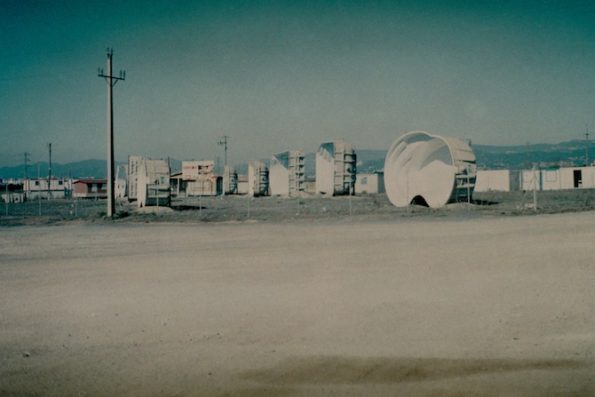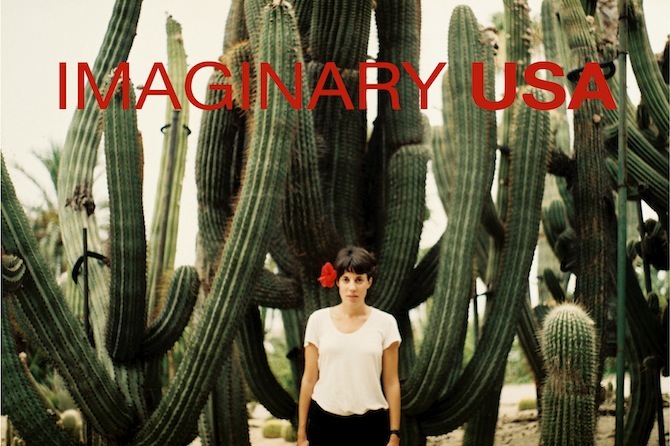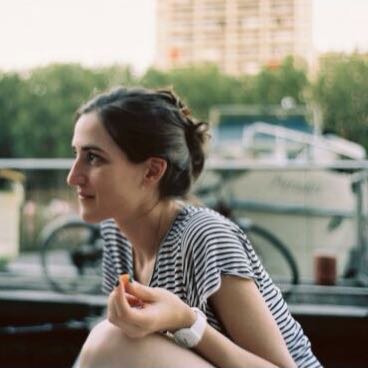Search
To search for an exact match, type the word or phrase you want in quotation marks.
A*DESK has been offering since 2002 contents about criticism and contemporary art. A*DESK has become consolidated thanks to all those who have believed in the project, all those who have followed us, debating, participating and collaborating. Many people have collaborated with A*DESK, and continue to do so. Their efforts, knowledge and belief in the project are what make it grow internationally. At A*DESK we have also generated work for over one hundred professionals in culture, from small collaborations with reviews and classes, to more prolonged and intense collaborations.
At A*DESK we believe in the need for free and universal access to culture and knowledge. We want to carry on being independent, remaining open to more ideas and opinions. If you believe in A*DESK, we need your backing to be able to continue. You can now participate in the project by supporting it. You can choose how much you want to contribute to the project.
You can decide how much you want to bring to the project.

Irena Visa presents, until 22 April, her first individual exhibition at the Mutuo Centro de Arte , in Barcelona. Imaginary USA is the title of the show and also of the project being exhibited: a collection of landscape photographs accompanied by an audio-visual projection and the map of a road trip through the United States. It’s a series of photographs that at a first glance look like documentary settings of rural America. Natural landscapes, views of gas stations, roads and fairground scenes, conventional views of an imaginary that we are already accustomed to and that we immediately relate to the idea we have of rural America, whether we’ve been there or not.
The photographs of Imaginary USA haven’t been taken in Colorado, Iowa or Phoenix, so much as in Banyoles, Olot and other places in the Catalan geography. Despite this, they have a distant air, suspended in time, slightly faded, as if digitally filtered, making them seem like idyllic postcards of a voyage of discovery through film-settings. Irena Visa is from Banyoles and when she studied at high school she often went to Strall, a bar with a touch of the American “diner” about it, half Saloon –half roadside bar from Arkansas. Even then she began to think about the question of “remembering” with certain precision places that she had never been to, that she couldn’t even situate on a map: why Arkansas? What’s there? Why did the basketball court in the town “remind” her of Harlem? To what extent are we influenced by the filmic imaginary exported by the United States when we think about rural or urban landscapes of this country?
Over the last three years this reflection has been made more consciously and has begun to be accompanied by images that create a sort of map of American locations in Catalonia. Each one of the photographs, all made under the same subjective lens of what reminded Irene of America, received a title that corresponded to a hypothetical location, the name of a city or an American state, according to a criteria of similitude with real images of these places she found on the Internet. As an experiment, she placed some of the photographs on Facebook and was surprised to see that more than one person asked her about her trip to Arizona and the surrounding area and she took advantage of the confusion to propose a project that plays with a given collective imagination, that is not that of the actual principal receiver of the work, and at the same time explores the true-false dichotomy of photography.
It seemed as if photography ought to be an objective tool for documentation but history has shown us that it’s totally falsifiable even without, as in this case, any form of political intent. More than asking ourselves if we ought to trust the images, we ought to ask ourselves about the processes of cultural transmission that cause us to recognize a location and situate it on a point on a map without needing to have ever seen this place with our own eyes.
It’s true they filmed westerns in Almería and that places like “Esplugas City” existed, where the reconstruction of the American far west was done intentionally with a clear objective: that of situating a story in a specific place, a place that physically wasn’t the one where the action was situated but that looked like it. The same occurs with the photographs of Irena Visa, it seems as if they have been taken in the far west, in the Sonora desert or on the highways of Route 66, though in reality they are landscapes from the north of the Catalan territory and moreover they don’t respond to any express desire to deceive.
For the opening of the exhibition at Mutuo, Irena Visa invited a few friends to play some songs that would in some way accompany the photographs. Lo Loable (The praiseworthy) that here isn’t what can be praised, so much as everything that can be made into a noun and preceded with the neutral denominator “the” –like “the American”, “the imaginary”, “the photographic” or even “the ephemeral”, adapted a series of popular Catalan songs to the style of music typical of rural America,country, following a process similar to the one that the artist had followed in the development of the project. What would “Sol, solet” sound like it if was a country song? And “En Joan Petit quan balla”? Lo Loable (keyboard, guitars, violin and voice) came together for the occasion, dressed in shirts of American basketball teams, constituting a musical counterpoint to the visual project exhibited and despite their success have no intention of playing again.
Imaginary USA is an “ongoing project” but also one with a closing date: on 16 July the series will be considered complete, as Irena Visa is going on a trip to the United States and will no longer take photographs of memories that weren’t lived, of locations inspired by an intuition, or of imaginary landscapes of deepest America. In any case she will cast aside false documentary to use photography as an objective tool to portray the landscape. Or not.


Glòria Guso is an art historian and a researcher in the social sciences. She was born in the periphery of Barcelona but lives in Paris and her second home is Germany. For her PhD thesis in sociology she studies the international mobility of the visual arts professionals. She writes, coordinates, edits, documents and criticizes.
"A desk is a dangerous place from which to watch the world" (John Le Carré)